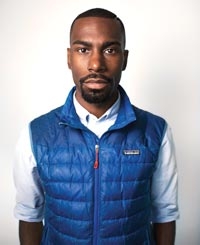On the Other Side of Freedom: The Case for Hope
DeRay Mckesson. Viking, $25 (240p) ISBN 978-0-525-56032-6
In this thoughtful collection of essays, activist and podcaster Mckesson reflects on what he’s learned from protest, family upheaval, racial inequality, homophobia, community organizing, abuse, and love. He explains the origins of the phrase “black lives matter”; his decision to leave Minneapolis to join the protests of Michael Brown’s killing in Ferguson, Mo.; and why he wears his trademark blue down vest. Calmly but with conviction, he lays out a philosophy of future-oriented action, asserting that “our power can never be defined by the things we destroy [but] by the things we build” and “when we see that lives can be improved through actions we can feasibly take, we must take them.” Mckesson uses extended metaphors to illustrate currents in American life—a childhood experience with a bully serves as a synecdoche for political injustice; “The Choreography of Whiteness” features an unusual but apt metaphor about a hypothetical school’s response to finding out that a subset of students failed a test because they were intentionally sold defective rulers; and “the quiet,” an alternative to “the closet,” is imagined as a library (“a place of exploration that says don’t speak... but there are always... people finding ways to have voice despite the rules”). He asserts that the quiet leads those “in power [to] believe that they’re... the sum total of humanity.” The volume’s nonaccusatory tone and focus on structure and culture make it a welcoming, accessible, and inspiring entrance point to social justice work. (Sept.)
Details
Reviewed on: 07/23/2018
Genre: Nonfiction
Other - 978-0-525-56033-3
Paperback - 240 pages - 978-0-525-56057-9
Audio book sample courtesy of Penguin Random House Audio


